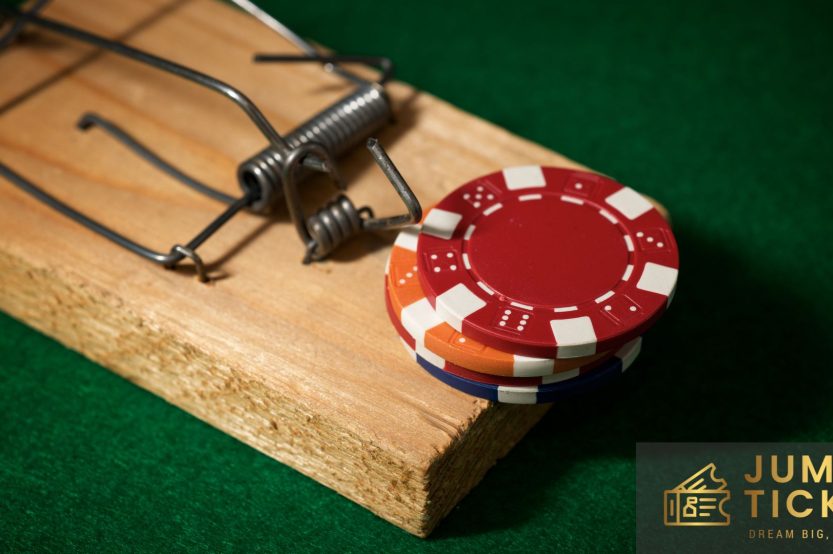Partaking in games of risk is perfectly normal. It does good, from time to time to have that excitement or adrenaline rush. A morale boost is good, but too much of a good thing can sometimes be not so good. An estimated 2.6 percent of the population has a gambling addiction and, as a result, has experienced hardships. Let’s look at how to keep a gambling addiction under check. Here are a few tips to follow.
- Identifying the problem
- Seeking assistance
- Avoidance
- Controlling urges
- Changing focus
- Contemplate repercussions
Identifying the problem
To fix the issue, one must understand what it is. It starts with learning what gambling addiction is and accepting that you are indeed affected by it before you can try eliminating it. Gambling is a mental health disorder similar to that alcoholism. Here are a few signs that you might be in the fold already.
- There is a need to gamble with large amounts.
- The uneasy feeling when not gambling.
- Gambling to distract yourself.
- They keep the addiction a secret from close ones.
- Need for financial support.
Be honest with yourself when you notice the symptoms of a gambling disorder, or better yet, ask someone close to you what they think of your gambling to understand it better. Stop denying yourself and start seeing the adverse effects of gambling on your life.
Seeking assistance
Now you’ve identified the problem, you can ask the support team for help. Support groups are organizations run by people with similar experiences and backgrounds. While support groups have no professional involvement, they are free to try face-to-face or online discussion forums.
Gamblers Anonymous is one such support group created around the needs of people with gambling problems. The group works with a well-known 12-step method used by other support groups such as Alcoholics Anonymous or Drugs Anonymous. They organize conferences in more than 25 countries.
Avoidance
Gambling is a temptation, but treating it as an addiction is better because it allows you to use addiction recovery techniques and relapse prevention. For people in recovery, avoiding people, places, and activities related to gambling can help them avoid frustration; by avoiding these triggers, you can avoid thoughts and feelings that encourage play.
So if going past a casino after you leave work reminds us of gambling, choose another route to get home. If watching sports makes you want to bet, think about seeing something else. Cut off your credit cards and let your spouse take care of the checkbook. It may sound complicated, but in the same way that a person with an alcohol problem should never walk into a bar, identify your triggers and avoid them.
Controlling urge
The urge can be intense, and while in the midst of it, it feels like it can last forever. But that’s not the case. Every desire has a beginning, an intermediate, and an end. You can continue to recover as long as you can postpone gambling.
One way to deal with this problem is to pay attention to your urge to gamble, how it feels, what you think during this phase, and how long it usually lasts. As you study desire, you begin to control it.
Changing focus
Avoiding triggers and distractions during cravings is a good way. To improve your situation, you need to find healthy alternatives to gambling. If you replace gambling behaviors with positive ones, you can shift focus from the bad to the good.
Some of the game’s options include:
- Physical activity
- Meditation
- Spend more time with friends and family who don’t play
- Volunteer at an animal hospital or boarding school
- Discover new hobbies
- Traveling
Think of fun and rewarding options that you can explore with the extra money you don’t play.
Contemplate repercussions
Shame and guilt are strong feelings for anyone recovering from addiction. Shame and guilt can be dangerous because shame and guilt favor relapse, but a certain level of shame and guilt motivates you to recover.
Think about the consequences of gambling in the past to avoid playing in the future. think about it:
- The emotional pain you inflict on your loved ones
- The financial difficulties you brought to your family
- Any lie you tell to hide your addiction from others
Try not to think about past behaviors and use them only as an incentive to avoid gambling in the future. Too much shame or guilt can be counterproductive.
Final thoughts
Jumbo Ticket believes in the betterment of the world around. Hence, we’d like to advise our members to play the lottery with us responsibly. Since it’s also national translation day, you can check out this gambler’s help page that provides help in other languages. Share it with loved ones or someone you know who could use it, and of course, don’t forget to Dream Big! Win Big!
Read more:

